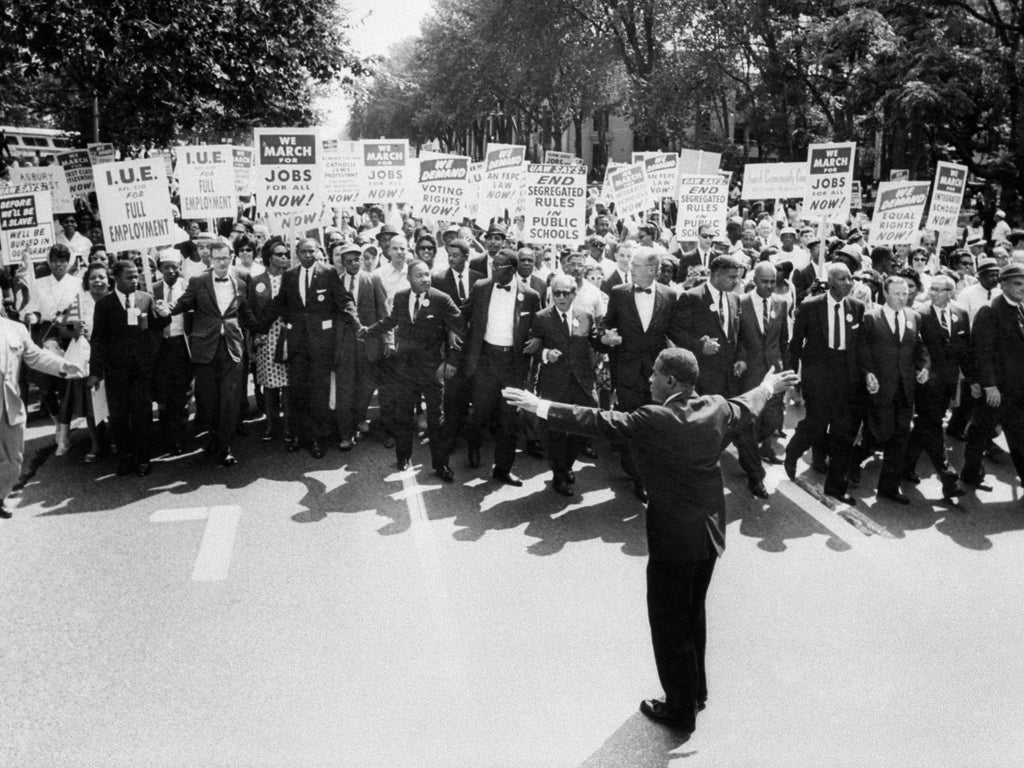What Martin Luther King taught me about extremism
Dr King helped me have a better understanding of the term - people who use lazy assumptions linking extremism with Muslims should also take heed

As the United States celebrates the 50th anniversary of the ‘March for Jobs and Freedom’ and the civil rights rally where Martin Luther King Jr made his famous “I have a dream” speech, an issue which often gets ignored is the use of the word ‘extremist’ to describe Dr King.
At the time, the Alabama clergymen were quick to brand him an extremist because they were worried that his civil rights campaign and fight for racial equality would cause more tensions between black and white people in the US.
Dr King’s response to the claims that he was an extremist was to write his seminal Letter from the Birmingham Jail. What followed was a profound statement from Dr King and one that should never be forgotten by those who are quick to use the term extremism to signify communities under suspicion.
In his Letter from the Birmingham Jail, King wrote:
“But though I was initially disappointed at being categorized as an extremist, as I continued to think about the matter I gradually gained a measure of satisfaction from the label. Was not Jesus an extremist for love…Was not Amos an extremist for justice…Was not Martin Luther an extremist…So the question is not whether we will be extremists, but what kind of extremists we will be. Will we be extremists for hate or for love? Will we be extremists for the preservation of injustice or for the extension of justice?”
Those words have had a powerful impact on me, as Dr King eloquently and passionately helped me have a better understanding of the term extremism. It should also be read by those people who are quick to use lazy assumptions that link extremism with Islam and Muslims. My research into extremism has shown that many Muslim communities agree with the view of Dr King and believe that there is both good extremism and bad extremism. As the term continues to interchange, so too does our understanding of extremism.
Dr King was once considered an outsider and a troublemaker. The Alabama clergymen fought against him because they felt his mission of change was too ‘extreme’ for their liking. Dr King thus joined a number of people such as Gandhi, Nelson Mandela and Malcolm X who were also considered to be extremists - and indeed in some cases terrorists. What they all have in common is that they are now accepted as being pioneers for change, and individuals who have made an important contribution towards social activism and social community cohesion.
On this special occasion, let’s try to have a better understanding of what Dr King meant when he talked about extremism, and let us use that to frame how British policy deals with extremists. If Dr King was alive today, he probably would also be an extremist under British Law. Too often those who use the term do so with a narrow lens, and forget that a more nuanced approach is required. One that understands, as Dr King did, that we all are extremists - it just depends whether we take the path of extreme love or extreme hate.

Join our commenting forum
Join thought-provoking conversations, follow other Independent readers and see their replies